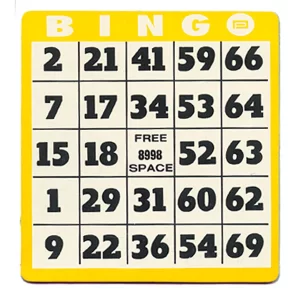The Psychology of Luck – How Beliefs Impact Your Gambling Experience

Casino. Night club. Poker table. The dealer shuffles the cards. There are also many colored chips on the table. Gambling Gambling business. Game strategy. Close-up.
The concept of luck is a topic of intense discussion in both psychology and philosophy. In the psychological arena, researchers have focused on how our beliefs about luck affect our behavior and decisions.
For example, studies have found that people who believe they are lucky wager more money when gambling. They also engage in upward counterfactual thinking, which minimizes regrets about their gambling behavior.
1. Beliefs About Luck
The concept of luck has been at the center of a number of psychology and philosophical studies. Philosophical discussions of luck have tended to focus on the putative existence of moral and epistemic luck, while psychological research on the topic has focused primarily on how individuals perceive and interpret their own lucky or unlucky experiences.
One example of how beliefs about luck affect gambling is confirmation bias, which causes people to notice and remember information that supports their existing beliefs while ignoring contradictory evidence. This can lead to the belief that actions such as blowing on dice or holding a lucky charm can influence the outcome of a game, even though these actions have no actual impact on random events.
Psychologists have also found that a person’s feelings of being lucky can lead to optimism and higher performance on tasks like motor dexterity, memory and anagrams. In fact, Maltby and colleagues have suggested that a link exists between luck beliefs and self-efficacy, confidence, control, positive goal-setting and achievement motivation.
2. Optimism
The way you think about luck has a lot to do with your own optimism. Optimists are more likely to engage in goal-oriented behaviors, and they tend to believe that their efforts will pay off. They’re also more likely to see others as lucky than pessimists, and they’re generally more satisfied with their life overall.
Interestingly, research suggests that optimism is partly genetic—identical twins score more closely on happiness surveys than fraternal twins. However, there’s still debate over how much of it is environmental.
One study found that recurring players of games of chance and gambling were more optimistic than pessimistic, and they estimated a higher chance of highly unlikely desirable events. They anchored their optimism in religious beliefs and attitudes, and extrinsic desired events (like winning the lottery) were more predicted by religiosity than intrinsic ones.
3. Self-Determination
The foundation of self-determination theory recognizes that learners and players are oriented towards growth. They are motivated internally through intrinsic motivation and externally through extrinsic motivation. They also have internal decisions that they make, and these decisions have different impacts on their outcomes. For example, if someone believes they have good luck, it will affect their cognitive reflection tasks and performance. However, if they believe they are unlucky, they will be more likely to experience anxiety and have less confidence in these tasks (Steele & Aronson, 1995).
Richard Wiseman’s study on lucky people found that people who believed they were lucky did better in logical and numeric thinking tasks. This is because they tended to have a stronger self-efficacy belief in their abilities. In this way, they were able to bounce back from their failures and refocus. In contrast, those who did not believe they had good luck were more prone to negative stereotypes and anxiety.
4. Anxiety
If you’re struggling with gambling addiction, there is help available.
People gamble for a variety of reasons, including the adrenaline rush of winning money, socialising with friends or escaping from stress and anxiety. For some, however, the habit of gambling can become harmful and result in a loss of control. Problem gamblers often experience a sense of shame and guilt when they admit to having a problem and may feel pressure from family members to keep quiet about their problems.
Psychological researchers have found that a person’s luck can be influenced by their state of mind. Using cognitive therapy, you can challenge irrational thinking habits such as the illusion of control and superstitious beliefs that lead to compulsive gambling. Identifying triggers and learning coping techniques can help you manage your urges, such as postponing gambling and distracting yourself with a hobby. Alternatively, seeking help from a professional therapist or attending support groups can also be helpful.








